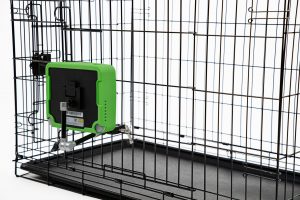Scientists in the United Kingdom and China have announced plans to use artificial intelligence on chicken farms in order to combat the problem of antibiotic resistance in both farm animals and humans.
The new initiative will use machine learning to find ways to track and prevent disease on poultry farms, reducing the need for antibiotic treatment in chickens and therefore lowering the risk of antibiotic-resistant bacteria transferring to people.
The research will be led by animal health experts from the University of Nottingham and Nimrod Veterinary Products in the UK as well as two Chinese partners-New Hope Liuhe in Chengdu and the China National Center for Food Safety Risk Assessment.
The new project is part of Farmwatch, which is a UK-China agricultural initiative supported by 1.5 million pounds ($1.8 million) in joint funding from British agency Innovate UK and China’s Ministry of Science and Technology.
Around 700,000 deaths a year stem from antibiotic resistance, according to a report commissioned by the UK government. If left unchecked, drug resistance could lead to 10 million deaths a year by 2050, which is more than the number of people who now die from cancer annually.
Farms, where otherwise healthy animals are given medication as a preventative measure, act as breeding grounds for anti-bioticresistant strains of bacteria that transfer to people.
Antibiotics work by disrupting function in certain parts of a bacterial cell. Bacteria become resistant to antibiotics through genetic mutations that alter those areas of the cell, meaning the medication can no longer target them.
A study by the University of Calgary in Canada found that restricting the use of antibiotics in healthy farm animals can reduce the prevalence of antibiotic resistance by up to 39 percent.
The researchers from Nottingham and China will take thousands of samples from the animals, humans, and the environment at nine farms across three Chinese provinces during three years. They will also measure other variables, such as humidity and temperature.
Lire la suite: global.chinadaily.com.cn






